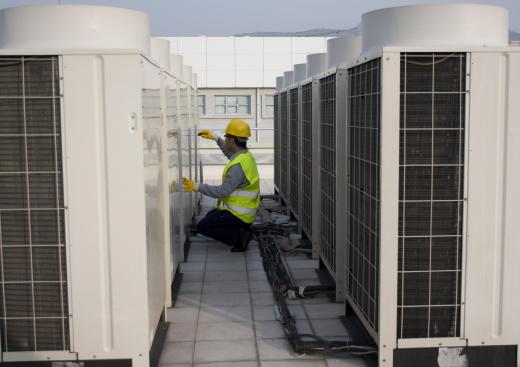Industrial refrigeration units are not the same as residential refrigeration units. When it comes to cooling food items at an industrial level, different refrigerants are used, including anhydrous ammonia, carbon dioxide, and propane. In order to choose the best refrigeration system for your industrial space, it's best to first understand how each unit functions.
Anhydrous ammonia is used frequently, and it is often the type of coolant in most industrial refrigeration units. Due to ammonia's excellent heat transfer capabilities, this coolant can keep food cold for a long period of time. In addition, ammonia does not harm the environment, and it is also biodegradable.

Carbon dioxide was once the only form of industrial refrigeration. Even though carbon dioxide was largely phased out over the past few years, this type of coolant is resurfacing once again. The main advantage to carbon dioxide is that it can cool foods quickly, which is often crucial for industrial applications.
Propane refrigeration units tend to be found mostly in refineries. Since propane is highly flammable, this type of refrigeration system must be carefully observed. In fact, most countries do not allow the use of propane within a regular industrial setting. Propane refrigeration units can be used in industrial areas that follow specific laws in regards to safety.
While some companies manufacture all three types of refrigeration units, most industrial companies only manufacture one or two types. Anhydrous ammonia and carbon dioxide units are relatively easy to locate, while propane units may be more difficult to purchase. Either way, it is best to purchase any kind of industrial refrigerator in person rather than on the Internet.
There are many great discounts that can be found online, though shopping for a refrigerator without seeing it first can be a mistake. Not only should you search for a unit that is durable, but you should also make sure that any unit you purchase is under warranty. Industrial refrigerators tend to take a lot of abuse, which means that a valid warranty is important.
Also, take into consideration safety precautions, the size of the unit that you are considering, and ease of installment. Some refrigerators are simple to incorporate into an existing industrial kitchen, while others may require additional hook-ups. Lastly, ensure that any refrigerator you choose is easily operable -- some of these units are complex. To find out about this type of information, contact an industrial refrigerator supplier in your area.
